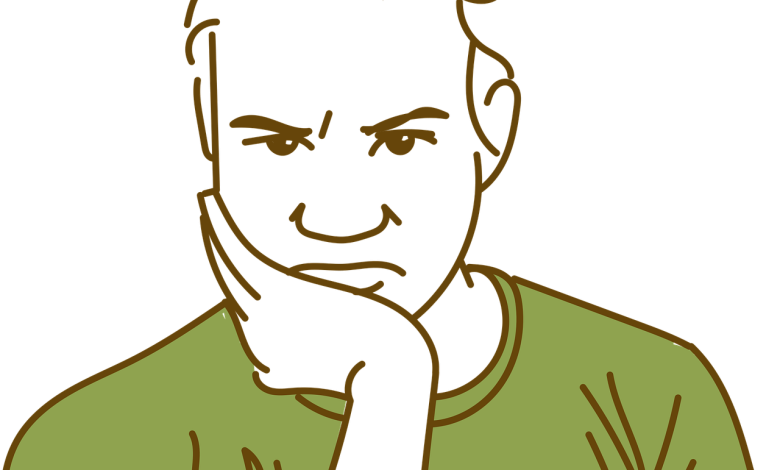7 Weed Withdrawal Symptoms You Should Know

Weed, also known as marijuana, is a psychoactive drug derived from the Cannabis plant. It is one of the most commonly used illicit substances worldwide. Marijuana contains various chemical compounds, with the most well-known and studied being delta-9-tetrahydrocannabinol (THC) and cannabidiol (CBD).
THC is the primary psychoactive compound in marijuana, responsible for the “high” or altered state of consciousness that users experience when consuming it. It binds to specific receptors in the brain, leading to a range of effects, including relaxation, altered perception, increased sensory perception, and changes in mood and appetite.
CBD, on the other hand, does not produce the psychoactive effects associated with THC. It is being studied for its potential therapeutic benefits, such as reducing anxiety, pain, and inflammation.
Marijuana is typically consumed in various forms, including smoking the dried plant material, consuming it in edible products like brownies or gummies, or using concentrated forms such as oils or extracts. It is used for recreational purposes to achieve a sense of relaxation and euphoria, but it is also used for potential therapeutic purposes, including pain management, nausea control, and relief from certain medical conditions.
The legal status of marijuana varies from country to country and from state to state in the United States. Some regions have legalized its recreational use, while others have legalized it for medical use only, and many places maintain its prohibition. It is essential to be aware of the legal status in your location before considering using marijuana.
What does weed do to your body?
Weed can have various effects on the body and mind due to its active compounds, particularly delta-9-tetrahydrocannabinol (THC) and cannabidiol (CBD). The effects can vary depending on factors such as the dose, the method of consumption, an individual’s tolerance, and their overall health. Here are some common effects of marijuana on the body:
1. Euphoria and Altered Perception: One of the most well-known effects of marijuana is the sense of euphoria, relaxation, and altered perception it can induce. People may experience heightened sensory perception, changes in time perception, and an altered sense of reality.
2. Increased Appetite: Often referred to as the “munchies,” marijuana can stimulate appetite, leading to increased food cravings.
3. Dry Mouth: Dry mouth, or “cottonmouth,” is a common side effect of marijuana. It occurs because THC can reduce saliva production.
4. Bloodshot Eyes: Marijuana can cause blood vessels in the eyes to expand, resulting in red or bloodshot eyes.
5. Impaired Coordination and Motor Skills: Marijuana can affect coordination and motor skills, which can lead to impaired driving ability and increased risk of accidents.
6. Impaired Memory and Concentration: Short-term memory and cognitive functions can be temporarily impaired while under the influence of marijuana.
7. Relaxation and Stress Reduction: Many people use marijuana for its relaxation and stress-reducing effects. It may help individuals feel more at ease.
8. Increased Heart Rate: Marijuana can lead to an increase in heart rate, known as tachycardia. This effect can be particularly noticeable shortly after consumption.
9. Anxiety and Paranoia: In some individuals, especially with high THC strains, marijuana can trigger anxiety, paranoia, or panic attacks.
10. Pain Relief: Marijuana is used for pain management and has been found to help alleviate various types of pain, including chronic pain and neuropathic pain.
11. Sleepiness: Some strains of marijuana can induce drowsiness and promote sleep, making it helpful for individuals with insomnia.
12. Psychosis: High doses of THC, especially in individuals predisposed to mental health conditions, can lead to temporary psychosis-like symptoms, including hallucinations and delusions.
It’s important to note that the effects of marijuana can vary widely from person to person. The potency and composition of the strain, the method of consumption (smoking, vaping, edibles, etc.), and an individual’s previous experience with the drug can all influence the specific effects. Additionally, marijuana use may have both short-term and long-term effects on mental and physical health.
What is weed withdrawal?
Weed withdrawal refers to the collection of symptoms and effects that some individuals experience when they abruptly stop or significantly reduce their consumption of marijuana (weed). While not everyone who uses marijuana will experience withdrawal symptoms, it is a common phenomenon, especially in individuals who have been using the drug regularly or heavily. Weed withdrawal typically occurs due to the abrupt cessation of THC, the psychoactive compound in marijuana, which the body and brain have become accustomed to.
Common symptoms of weed withdrawal may include:
1. Irritability: During weed withdrawal, irritability is a frequently reported symptom. Individuals may find themselves easily annoyed, frustrated, or anxious. This change in mood can be challenging to manage, impacting personal relationships and daily interactions.
2. Insomnia: Many people going through weed withdrawal experience sleep disturbances. They may find it difficult to fall asleep or stay asleep through the night. This insomnia can be distressing and may exacerbate other withdrawal symptoms due to sleep deprivation.
3. Changes in Appetite: Weed withdrawal can lead to fluctuations in appetite. Some individuals may experience a reduced appetite and weight loss, while others may have an increased appetite, leading to overeating and potential weight gain. These shifts can affect overall health and well-being.
4. Cravings: Strong cravings for marijuana are a common feature of withdrawal. These cravings can be intense and difficult to resist, often leading to a strong desire to resume marijuana use. Managing and overcoming these cravings is a key challenge during withdrawal.
5. Anxiety and Depression: Mental health symptoms such as heightened anxiety and depression can manifest during weed withdrawal. These emotional challenges can be particularly difficult to deal with and may necessitate professional support and treatment.
6. Sweating and Restlessness: Physical symptoms during withdrawal can include excessive sweating and restlessness. These physical sensations can contribute to the overall discomfort experienced during this period.
7. Physical Discomfort: Additional physical discomforts may include headaches, nausea, muscle pain, and general feelings of unease. These symptoms can make the withdrawal process physically and emotionally taxing.
How long do symptoms of weed withdrawal last?
The duration and severity of weed withdrawal symptoms can vary from person to person and depend on several factors, including the individual’s history of marijuana use, the amount and frequency of use, and their overall health. Generally, weed withdrawal symptoms tend to peak within the first week after discontinuing marijuana use and then gradually subside over the next few weeks. However, some residual symptoms or cravings may persist for a longer period. Here’s a general timeline of weed withdrawal symptoms:
1. Day 1-3: The initial days after discontinuing marijuana use may bring about irritability, anxiety, and mood swings. Sleep disturbances, such as difficulty falling asleep or staying asleep, can also be prevalent.
2. Day 4-7: In the first week, withdrawal symptoms may intensify. Cravings for marijuana can become stronger, and some people may experience physical discomfort, including headaches, nausea, and sweating.
3. Week 2-3: As the second week begins, withdrawal symptoms typically start to diminish. Irritability and mood swings may gradually subside, and sleep patterns often improve. However, some individuals may still experience lingering cravings or mild anxiety.
4. Week 4 and Beyond: By the end of the first month, most individuals will have experienced a significant reduction in withdrawal symptoms. However, some people may continue to have intermittent cravings and mild mood disturbances for several weeks or even months.
It’s important to note that while the physical withdrawal symptoms of marijuana are generally not severe or life-threatening, the psychological and emotional aspects of withdrawal can be challenging for some individuals. The intensity and duration of withdrawal symptoms can be influenced by various factors, including the individual’s overall health, stress levels, and the presence of any underlying mental health conditions.
If you find that your withdrawal symptoms are particularly severe or persistent, or if you are struggling to cope with them, it’s advisable to seek support from a healthcare professional or an addiction specialist. They can provide guidance, coping strategies, and, if necessary, refer you to appropriate treatment options to help you manage weed withdrawal and address any underlying issues related to marijuana use.
How To Detox From Weed
Detoxing from weed, or marijuana, involves clearing your body of the drug and its metabolites after a period of use. While marijuana detox is generally not as physically intense as detox from certain other substances, it can still be challenging, especially for heavy and long-term users. Here are some steps to help you detox from weed:
1. Abstain from Use: The first step is to stop using marijuana. This will prevent additional THC (tetrahydrocannabinol) from entering your system, allowing your body to begin the detox process.
2. Hydration: Drinking plenty of water can help flush THC metabolites from your system through urine. Staying well-hydrated is important, but don’t overdo it as excessive water consumption can lead to water intoxication. Aim for around 8-10 cups of water per day.
3. Diet: A healthy, balanced diet can support the detox process. Focus on fruits, vegetables, lean proteins, and whole grains. Some specific foods that may assist in detox include cranberry juice and certain herbs and supplements like milk thistle.
4. Exercise: Regular physical activity can help speed up the metabolism, which may facilitate the elimination of THC from the body. Exercise can also help with stress and mood, which are often affected during marijuana withdrawal.
5. Sauna and Sweating: Sweating can be another way to help eliminate toxins. Using a sauna or engaging in activities that induce sweating, like jogging, can promote detoxification.
6. Rest: Adequate rest and sleep are important for overall well-being and can help your body recover and repair itself during the detox process.
7. Time: Time is a crucial factor in weed detox. THC and its metabolites can be stored in fat cells, and it takes time for the body to eliminate them fully. The length of time required for detox can vary based on the frequency and amount of marijuana use, as well as individual factors such as metabolism and body fat percentage.
8. Support and Professional Help: If you’re struggling with the detox process or experiencing severe withdrawal symptoms, consider seeking support from a healthcare professional or addiction specialist. They can provide guidance, counseling, and, if necessary, recommend treatment options.
9. Mindfulness and Stress Management: The withdrawal process can be mentally challenging. Practicing mindfulness, relaxation techniques, and stress management can help you cope with mood swings and anxiety during the detox period.
10. Testing and Monitoring: If you need to pass a drug test for employment or legal reasons, consider using at-home drug test kits to monitor your progress. This can help provide assurance that you’re THC-free.
Remember that the duration of detox and the intensity of withdrawal symptoms can vary widely among individuals. If you have concerns about the detox process or are struggling with severe symptoms, it’s essential to seek professional guidance and support to ensure a safe and successful detox from weed.





